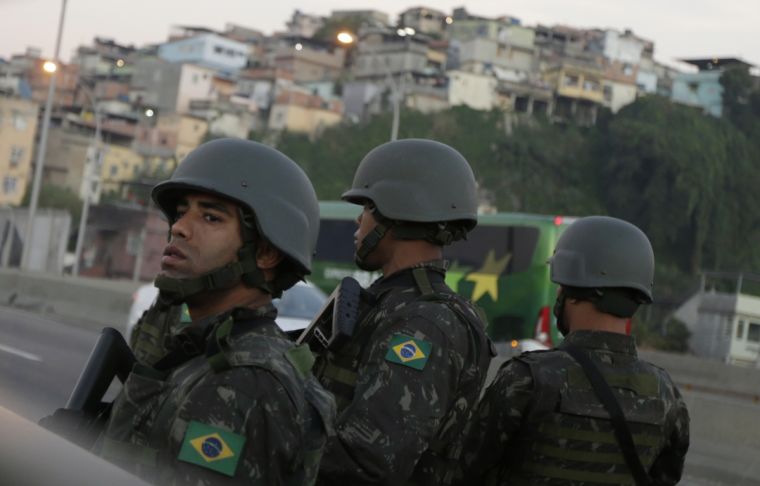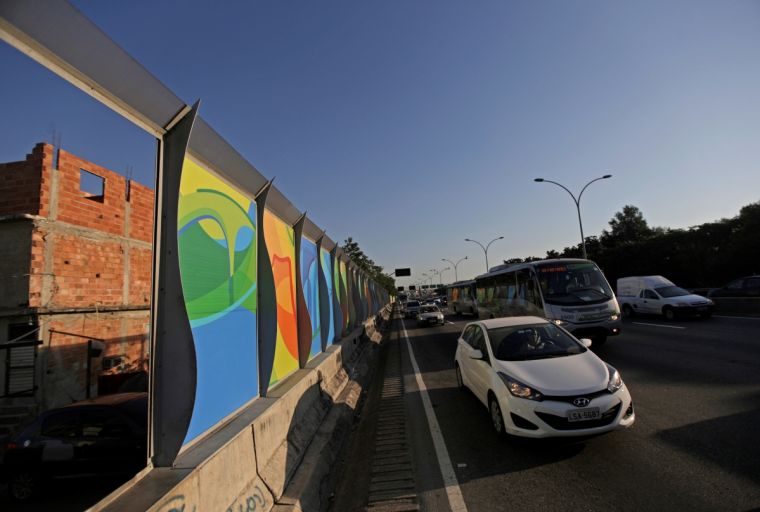Rio 2016: Will this Olympic Games be the most unjust ever?

The greatest show on earth is to open in Rio de Janeiro in five days. But after the triumphant London 2012 Olympics, concerns are mounting that while the games themselves might pass off well enough – minus a sizeable cohort of Russian athletes banned at the last minute for cheating – the legacy for Rio might be one of increased poverty and crime, sports facilities that will prove to be white elephants, and shocking levels of debt.
And it all looked so promising. When Brazil was awarded the games seven years ago, it was on an economic high, and full of confidence. Now the hugely popular president at the time, Lula da Silva, is under investigation for corruption. His deputy and successor Dilma Rousseff is being impeached and has been suspended, and her successor is deeply unpopular. From a growth rate of nearly seven per cent in 2010, the country has plunged headlong into recession. Unemployment is nearly 11 per cent and wages have plummeted. Housing, education and anti-poverty programmes have been slashed. There's mounting unrest and resentment at the billions spent on the games.
So apart from the spectacle, what will the legacy of the games be for Rio's poor?
1. A huge debt
The games are expected to cost more than $15 billion, of which only $4 billion may be recovered through increased economic activity. Just two months ago, the governor of Rio de Janeiro declared a financial state of emergency and asked for federal support to avoid a "total collapse in public security, health, education, transport and environmental management".
Brazil's economy is expected to shrink by about four per cent this year. This has a knock-on effect on every area of national life.
2. Mass evictions
It's hard to know exactly how many dwellers in Rio's favelas or shanty-towns have been evicted to provide space for the Olympics and its associated projects. According to the Popular Committee on the World Cup and Olympics it was about 20,000 families between 2009 and November 2015. Andrew Zimbalist, autor of Circus Maximus: The economic gamble behind hosting the Olympics and the World Cup says it was more than 77,000 people. Protesters agains the evictions use the slogan, "Para Quem?" (For whom?)
3. Environmental damage
Instead of using the city's two golf courses, the Olympics organisers decided to build a new one. The new course encroaches on the Marapendi reserve which is home to rare butterflies, trees and other species. Biologist and environmental activist Marcello Mello told the Guardian: "They are destroying the Atlantic Forest, which is part of our national heritage."
4. Crime
The budget cuts have left a huge hole in Rio's provision for law enforcement. Helicopters have been grounded and half the city's fleet of police cars has been mothballed. Officers' salaries have been delayed. Civil police even staged a strike, greeting visitors at the airport with a sign saying, "Welcome to Hell. Police and firefighters don't get paid; Whoever comes to Rio de Janeiro will not be safe."
Worse, in December, the United Nations accused Brazilian police forces of systematically murdering poor black street children in an effort to "clean the streets" for the Olympics. Around 80,000 police and military officials will be deployed at the games, leading to fears that the problem will get worse.
5. Pollution
One of the selling points for Rio's Olympic bid was its promise to clean up the revoltingly polluted Guanabara Bay, where sailing and swimming events will be held. Despite promises to rid the waterway of at least 80 per cent of the raw sewage and rubbish polluting it, it has only been reduced by half. Last year the Associated Press published a report saying none of Rio's water venues were safe for swimming. This is not just about the games; the cleanup was meant to make life better for everyone.

These aren't the only things to have tarnished the games before they've even begun. Russia's doping scandal casts a long shadow. The Zika virus will keep tourists away, and it's already putting an extra strain on Brazil's overburdened health service. There's a sense that the country is really not in the mood for the games anyway.
But against all the odds, they are going to happen. Many of the athletes, particularly the ones who can stay out of the water, will have a good time. As a TV spectacular it will be made to work. But too much has gone wrong with these games, and there have been too many casualties, for anyone to feel quite easy about them – and Christians of all people should be willing to probe behind the facade to the reality.
In Rio's case, this could be taken literally. One of the symbols of the darker side of Rio 2016 is the giant advertising screens lining the route into the city from the airport. On the other side of the 10-foot high barrier is the favela complex of Maré – and people who live there are convinced the boards are there to make them and the poverty, violence and squalor they experience day by day invisible. As one resident, Edson Diniz, who runs a community organisation, told the Daily Telegraph: "The Olympics hasn't brought any consequence for those who live in the community so there's no change. People might be poor but they're not stupid."











